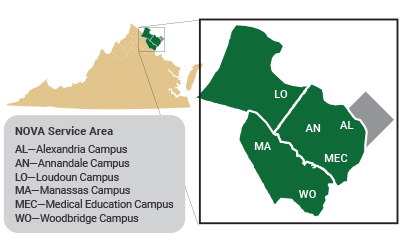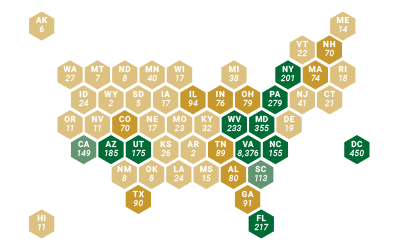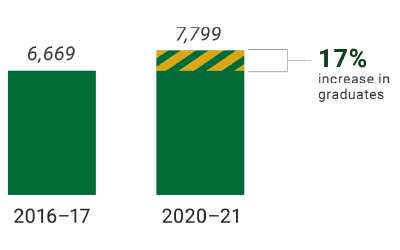Archive
Assessment | Vol. 6, Iss. 2
Origins of Assessment and Student Learning OutcomesThe assessment of student learning outcomes in higher education began during the 1980s in response to public criticism of both poor program and student performance at the college and university levels.1 The assessment...
NOVA Advising | Vol. 06, Iss. 01
Importance of NOVA Academic AdvisingThe student experience starts when prospective students first make a connection with the institution, and it continues until the students complete their goal. Academic advising is a critical part of a student’s experience....
Northern Virginia Labor Market | Vol. 05, Iss. 03
Northern Virginia Labor MarketThe service area of Northern Virginia Community College (NOVA) is comprised of Arlington, Fairfax, Loudoun, and Prince William counties, as well as the cities of Alexandria, Fairfax, Falls Church, Manassas, and Manassas Park. NOVA’s...
NOVA Student Transfers | Vol. 05, Iss. 02
NOVA Student TransfersTransferring to a Four-Year Institution Many students who start at a community college intend to transfer and complete a bachelor’s degree, but most of them are not successful.1 Only 40 percent achieve that goal within nine years of community...
NOVA Student Employment Outcomes | Vol. 05, Iss. 01
NOVA Employment Outcomes The Importance of Measuring Student Employment Outcomes While employment is not the only aim of postsecondary education, it has become an increasingly important factor for students in deciding whether to pursue a degree or credential. In a...
NOVA Graduation Rates | Vol. 04, Iss. 03
NOVA GRaduation Rates Graduation Rates in Community Colleges In the U.S., public two-year institutions serve about 8 million students per year, or approximately 40 percent of undergraduates. Community college students have lower graduation rates than students who...







